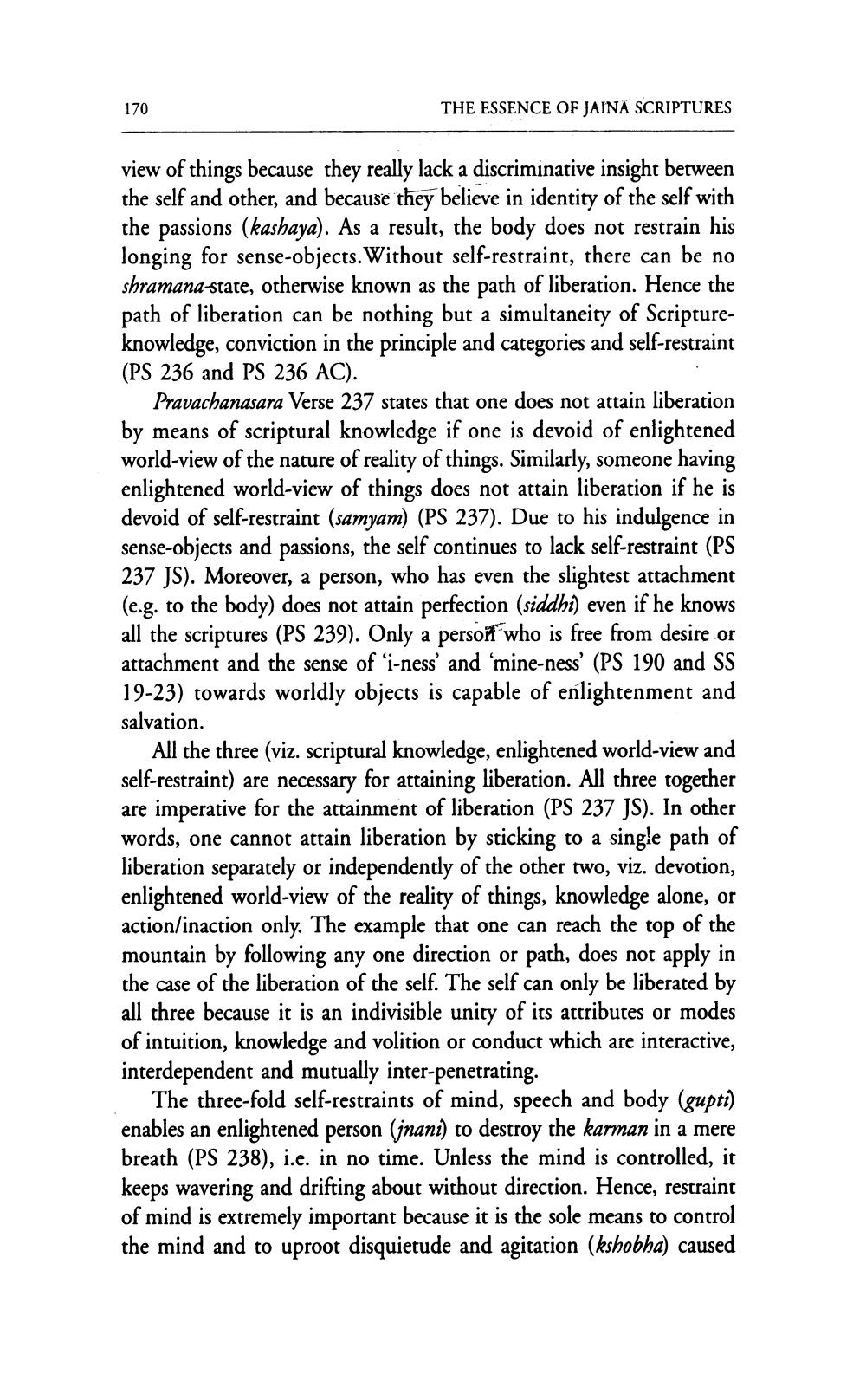________________
170
THE ESSENCE OF JAINA SCRIPTURES
view of things because they really lack a discriminative insight between the self and other, and because they believe in identity of the self with the passions (kashaya). As a result, the body does not restrain his longing for sense-objects. Without self-restraint, there can be no shramana-state, otherwise known as the path of liberation. Hence the path of liberation can be nothing but a simultaneity of Scriptureknowledge, conviction in the principle and categories and self-restraint (PS 236 and PS 236 AC).
Pravachanasara Verse 237 states that one does not attain liberation by means of scriptural knowledge if one is devoid of enlightened world-view of the nature of reality of things. Similarly, someone having enlightened world-view of things does not attain liberation if he is devoid of self-restraint (samyam) (PS 237). Due to his indulgence in sense-objects and passions, the self continues to lack self-restraint (PS 237 JS). Moreover, a person, who has even the slightest attachment (e.g. to the body) does not attain perfection (siddhi) even if he knows all the scriptures (PS 239). Only a persoff who is free from desire or attachment and the sense of ‘i-ness' and 'mine-ness' (PS 190 and SS 19-23) towards worldly objects is capable of enlightenment and salvation.
All the three (viz. scriptural knowledge, enlightened world-view and self-restraint) are necessary for attaining liberation. All three together are imperative for the attainment of liberation (PS 237 JS). In other words, one cannot attain liberation by sticking to a single path of liberation separately or independently of the other two, viz. devotion, enlightened world-view of the reality of things, knowledge alone, or action/inaction only. The example that one can reach the top of the mountain by following any one direction or path, does not apply in the case of the liberation of the self. The self can only be liberated by all three because it is an indivisible unity of its attributes or modes of intuition, knowledge and volition or conduct which are interactive, interdependent and mutually inter-penetrating.
The three-fold self-restraints of mind, speech and body (gupti) enables an enlightened person (inani) to destroy the karman in a mere breath (PS 238), i.e. in no time. Unless the mind is controlled, it keeps wavering and drifting about without direction. Hence, restraint of mind is extremely important because it is the sole means to control the mind and to uproot disquietude and agitation (kshobha) caused




